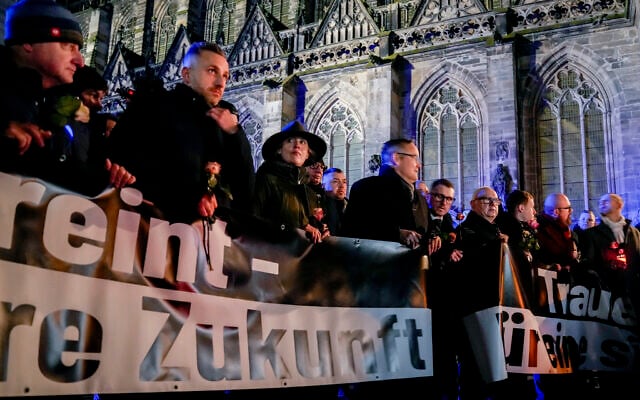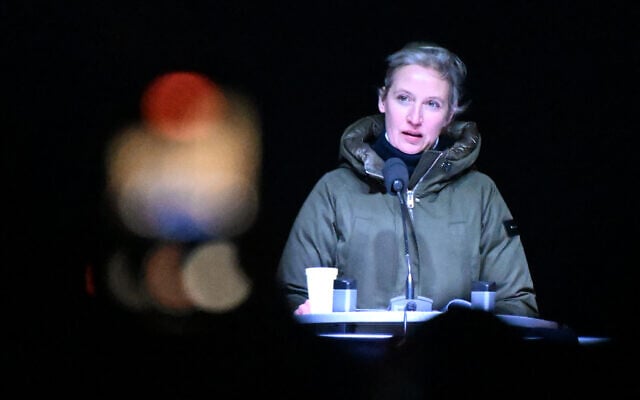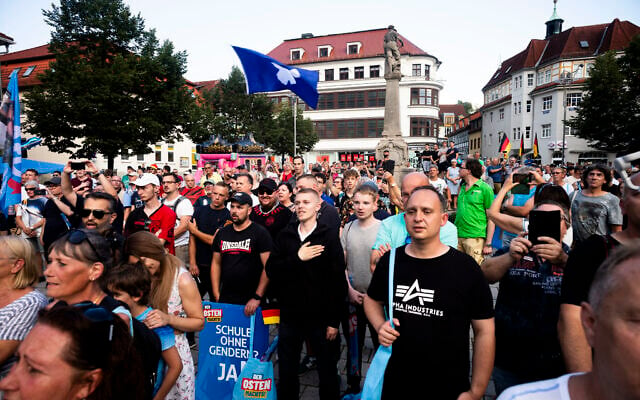


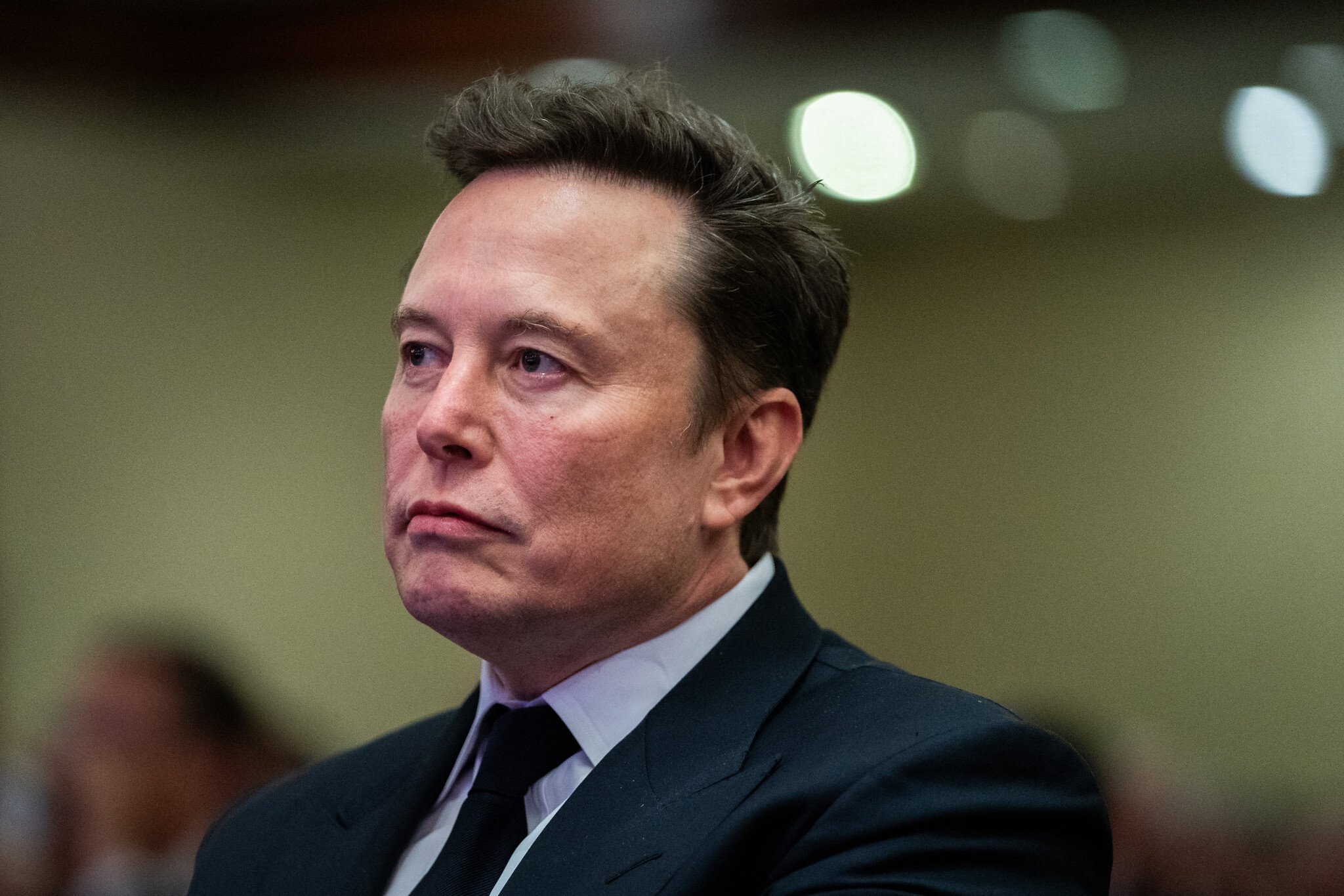
BERLIN, Germany — The German government accused US billionaire Elon Musk on Monday of trying to influence its election due in February with articles supporting the far-right Alternative for Germany (AfD) party, even though it suggested they amounted to “nonsense.”
Musk, who is set to serve Donald Trump’s new US administration as an outside adviser, endorsed the AfD as Germany’s last hope in a guest opinion piece for the Welt am Sonntag newspaper that prompted the commentary editor to resign in protest.
“It is indeed the case that Elon Musk is trying to influence the federal election” with X posts and the opinion piece, a German government spokesperson said.
Musk is free to express his opinion, the spokesperson said, adding: “After all, freedom of opinion also covers the greatest nonsense.”
Musk, the world’s richest person, has defended his right to weigh in on German politics because of his “significant investments,” and has praised the AfD’s approach to regulation, taxes and market deregulation.
His intervention has come as Germans prepare to vote in a parliamentary election on Feb. 23 after the collapse of the coalition government led by Chancellor Olaf Scholz. Musk also called for Scholz’s resignation after a car rammed into a crowd at a Christmas market on Dec. 20, killing five people.
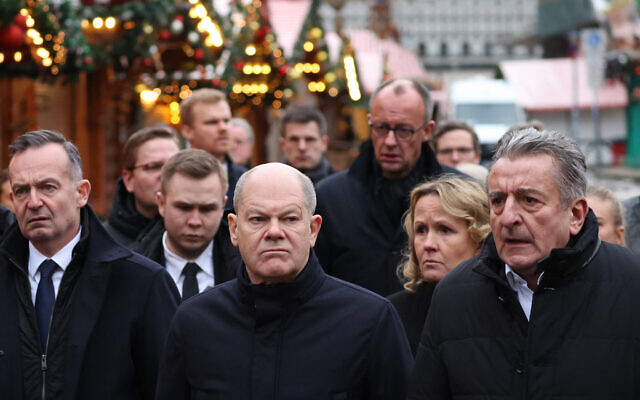
The AfD is currently in second place in opinion polls behind the main opposition conservatives, and might be able to thwart a center-right or center-left majority in the election. Germany’s mainstream parties have pledged not to work with the AfD at the national level.
The government spokesperson said Musk’s endorsement of the AfD was “a recommendation to vote for a party that is being monitored (by domestic intelligence) on suspicion of being right-wing extremist and which has already been recognized as partly right-wing extremist.”
German politicians have excoriated Musk for his endorsement of the AfD, with the co-leader of Scholz’s Social Democrats (SPD) comparing him to Russian President Vladimir Putin.
“Both want to influence our elections and specifically support the AfD’s enemies of democracy. They want Germany to be weakened and plunged into chaos,” Lars Klingbeil told the Funke news group on Monday.
Friedrich Merz, leader of the opposition Christian Democrats and current favorite to succeed Scholz as chancellor, told Funke that Musk’s comments were “intrusive and pretentious.”
Musk’s guest opinion piece for Welt am Sonntag — a sister publication of POLITICO owned by the Axel Springer Group — published in German over the weekend, was the second time this month he supported AfD.
“The Alternative for Germany (AfD) is the last spark of hope for this country,” Musk wrote in his translated commentary.
He went on to say the far-right party “can lead the country into a future where economic prosperity, cultural integrity and technological innovation are not just wishes, but reality.”
The Tesla Motors CEO also wrote that his investment in Germany gave him the right to comment on the country’s condition.
The AfD is polling strongly, but its candidate for the top job, Alice Weidel, has no realistic chance of becoming chancellor because other parties refuse to work with the far-right party.
An ally of Trump, the technology billionaire challenged the party’s public image in his opinion piece.
“The portrayal of the AfD as right-wing extremist is clearly false, considering that Alice Weidel, the party’s leader, has a same-sex partner from Sri Lanka! Does that sound like Hitler to you? Please!”
Musk’s commentary has led to a debate in German media over the boundaries of free speech, with the paper’s own opinion editor announcing her resignation, pointedly on Musk’s social media platform, X.
“I always enjoyed leading the opinion section of WELT and WAMS. Today an article by Elon Musk appeared in Welt am Sonntag. I handed in my resignation yesterday after it went to print,” Eva Marie Kogel wrote.
The newspaper was also attacked by politicians and other media for offering Musk, an outsider, a platform to express his views in favor of the AfD.
Musk’s opinion piece in the Welt am Sonntag was accompanied by a critical article by the future editor-in-chief of the Welt group, Jan Philipp Burgard.
“Musk’s diagnosis is correct, but his therapeutic approach, that only the AfD can save Germany, is fatally wrong,” Burgard wrote.
Responding to a request for comment from the German Press Agency, dpa, the current editor-in-chief of the Welt group, Ulf Poschardt, and Burgard — who is due to take over on January 1 — said in a joint statement that the discussion over Musk’s piece was “very insightful. Democracy and journalism thrive on freedom of expression.”
“This will continue to determine the compass of the ‘world’ in the future. We will develop ‘Die Welt’ even more decisively as a forum for such debates,” they wrote to dpa.

